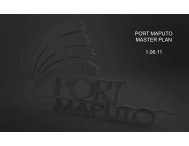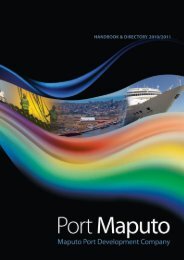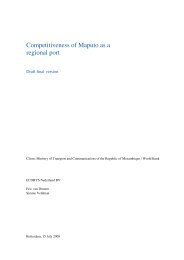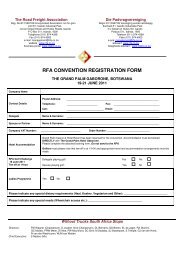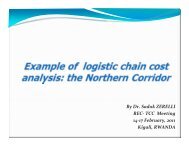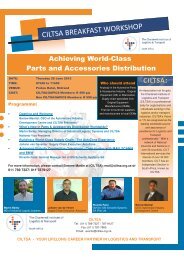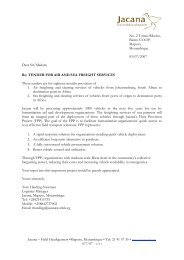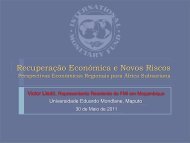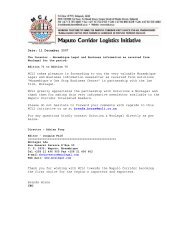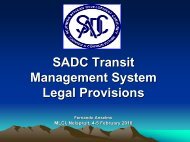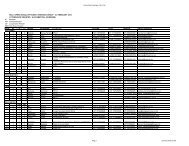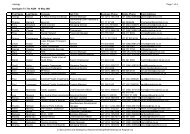Transit Customs Regime Diagnosis and Recommendations ... - MCLI
Transit Customs Regime Diagnosis and Recommendations ... - MCLI
Transit Customs Regime Diagnosis and Recommendations ... - MCLI
You also want an ePaper? Increase the reach of your titles
YUMPU automatically turns print PDFs into web optimized ePapers that Google loves.
Draft Report for SSATP –<strong>MCLI</strong> Mozambique <strong>Transit</strong> <strong>Regime</strong> Project<br />
EXECUTIVE SUMMARY<br />
The objective of this <strong>MCLI</strong> Mozambique <strong>Transit</strong> <strong>Regime</strong> Project (Phase 1) was to carry out a<br />
diagnostic study of the existing Mozambican transit customs regime <strong>and</strong> to compare it to<br />
that of the South African government <strong>and</strong> SADC protocol <strong>and</strong> relevant international treaties.<br />
The customs transit legislation currently in force in the Republic of Mozambique was<br />
approved by Ministerial Diploma 10/2002 of 30 January, which approves the <strong>Customs</strong><br />
<strong>Transit</strong> Regulations,. This document identifies those areas which have a negative impact on<br />
the Maputo Corridor <strong>and</strong> Port of Maputo cargo flows with regard to costs, time, complexity<br />
<strong>and</strong> other negatives, <strong>and</strong> proposes changes to the Mozambican Revenue Authority with<br />
regard to legislation, policies <strong>and</strong> procedures. <strong>Transit</strong> imports through the port of Maputo for<br />
the SA hinterl<strong>and</strong> have to compete with direct imports through South African ports where<br />
there are no transit regimes, <strong>and</strong> fewer costs <strong>and</strong> complexities. Another area of lost<br />
opportunity for Mozambique is encapsulated in the present complexities of the transhipment<br />
legislation, policies, processes <strong>and</strong> procedures in Mozambique through the port of Maputo,<br />
which drives importers in Beira <strong>and</strong> Nacala <strong>and</strong> their transit flows to neighbouring countries<br />
to rather have their freight transhipped in South African ports instead of utilising the port of<br />
Maputo. It is estimated that every additional vessel calling a Mozambican port adds around<br />
US$ 250K revenue to the Mozambican economy which ultimately contributes to job creation<br />
<strong>and</strong> poverty alleviation. 1<br />
<strong>MCLI</strong> has utilised a number of stakeholder meetings, expert inputs <strong>and</strong> other consultative<br />
mechanisms to ensure that this document presents the clear, consolidated voice of relevant<br />
industry stakeholders for the revisions to the Mozambican transit regime, which<br />
recommendations are contained in this report. We are gratified to find that these are in line<br />
with the proposals tabled by the Government of Mozambique regarding revisions already<br />
undertaken to facilitate the implementation of the Single Electronic Window System in<br />
Mozambique. If implemented in t<strong>and</strong>em, we are certain that these revisions will unblock<br />
substantial transit flows to Mozambican ports, release further investment <strong>and</strong> growth <strong>and</strong><br />
ultimately make a substantial contribution to the economy of Mozambique <strong>and</strong> to the region.<br />
1 MPDC Presentation at <strong>MCLI</strong> workshop February 2010<br />
P a g e | 7



